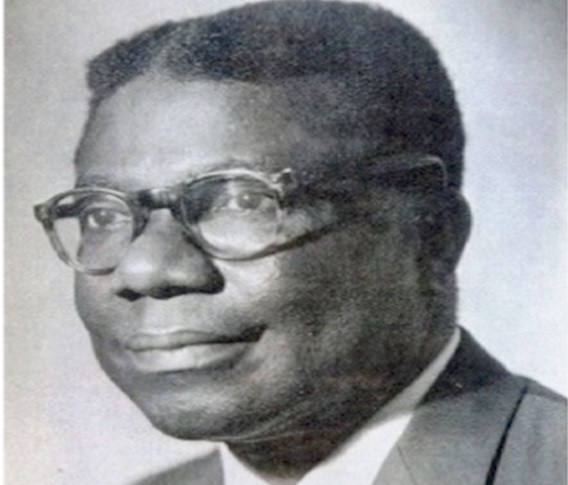
Dr Oku Ampofo an apostle of herbalism, a man of many talents
“I pay homage to Dr Oku Ampofo, sculptor and physician, who encouraged confidence in our traditional arts and medicine. It is thanks to him that herbal medicine became a respectable subject of study and research in our country”.
Advertisement
These were the words in a speech by Nana Addo Dankwa Akufo-Addo, President, on the occasion of Ghana’s 60th independence anniversary, delivered on March 6, 2017 to eulogise an unsung hero in Ghana’s history.
Rightly so, once upon a time, there lived a patriot, an innovator, a visionary and a traditionalist, a medical doctor and a herbalist, who determined to look inwardly and harness the potential within our environment to a stature that was to become a legacy for Ghana, Africa and the world.
His Childhood
Born on November 4, 1908, Kwaku Oku Ampfo was the third a of 18 children. He was the son of Chief Kwasi Ampofo, an Odikro of Amanase, and Akua Adwo.
In his own words, “we were taught to live together as one, [and] we were all one…when you come to the house, you will not know that this person and that person’s, mothers are different…”
His Education
Dr Oku’s father was a philanthropist and one who understood the value of education. He built the Basel Mission Church School at Amanase, which was to become the starting point of Dr. Oku’s educational trajectory.
At age eight, Oku enrolled at the school in 1916 and proceeded to a basic school in Mampong two years later.
Life at Anum Secondary School
It is said that nothing’s far when you want to get there, and the difference between the impossible and the possible lies in a person’s determination.
He enrolled in Anum Secondary school in 1921 and with the school located 90 miles from his village, it is said that he and his peers walked for three days at the reopening of school and walked back same during vacation.
This is how an elder at Amanase describes how young Oku journeyed to Anum for school.
“When they were going to school in those days, those from Amanase used the Aboabo road to Mangoase.
They meet another group of students there and join them, and they move again from Adawso to Mampong and join another group there, then move again from Asesieso to Somanya and join yet another group. They stop at wherever it gets dark and spend the night. They ate from their chop boxes which contained their belongings and some provisions.”

Becoming a MOBA
At age 18, he proceeded to the Mfantsipim Secondary School in the year 1926. He is said to have recounted that life in the school was very hectic and for a boy with great interest in laboratory work, the absence of laboratory facilities would have been enough to dent his morale but not this young man. He soldiered on to become the school prefect
To Edinburgh University
In his quest to pursue higher education, he enrolled at Achimota College in 1930 where he received a government scholarship to continue his education shortly after his father’s demise.
Guess who some of his mates were. They included Justice Edward Akuffo Addo, a member of the big six, Dr. Modjaben Dowuona, a former minister, and P.D. Quartey, an astounding sportsman.
Due to his distinguished academic performance, he again received a government scholarship in 1932 to study medicine and eventually went to Edinburgh University in 1933 aged 25, becoming the first Ghanaian to receive a government scholarship to study medicine. He returned to Ghana in 1940 to practice after qualifying as a doctor in 1939 at the Royal College of Surgeons.
Initiator of the Centre for Plant Medicine Research
After practicing shortly, Dr Oku Ampofo decided to branch into the practice of herbal medicine having experienced its therapeutic benefits throughout his life. In the early 60s, he started running a small outpatient clinic at Mampong Akuapem where he used herbal preparations to treat patients who visited his clinic. He named his clinic “Obikyereh”
Obikyereh literally means “someone shows” in the local language. It is derived from an adage, obi nnim a, obi kyere, meaning, if someone does not know something; it takes another to teach that person. He chose this name because he collaborated with prominent herbalists and documented knowledgeable information.
His efforts caught the attention of the visionary Osagyefo Dr. Kwame Nkrumah, who sponsored him to China for further studies in herbal medicine. He (Dr. Oku) returned to Ghana in 1966. In 1971, he and a team including representatives from the Ghana Academy of Arts and Sciences and the Ghana Psychic and Traditional Healers Association proposed to the government of Ghana recommending the establishment of a national Centre to facilitate and coordinate all research work on all Ghanaian medicinal plants.
The effort culminated in the establishment of the Centre for Plant Medicine Research under the Ministry of Health in 1975 at Mampong Akuapem. Ten years later, it became a World Health Organisation (WHO) Centre for collaborative research in traditional medicine, the first in Africa.
He died on February 18, 1988, aged 80. The clinic of the Centre for Plant Medicine Research is named after its first Director.
His bust reads, “Medical practitioner, Researcher, Sculptor, Actor, Herbalist, Lover of music, Initiator and first Director of the Centre for Plant Medicine Research.
The writer is Commercial Manager
Centre for Plant Medicine Research
Mampong Akuapem
E-MAIL: [email protected]




